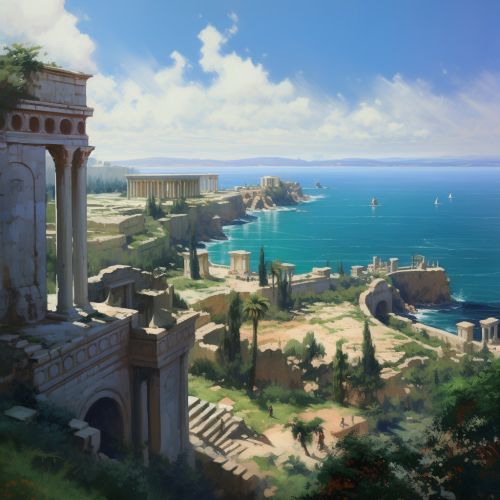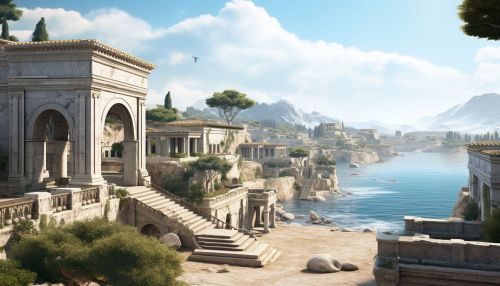History of Carthage
Origins and Establishment
The city of Carthage was founded by Phoenician settlers from the city of Tyre, who brought with them the city-god Melqart. According to tradition, the city was founded by Queen Elissa, better known as Dido, in 814 BC, though this date is subject to ongoing debate.


The settlers initially built a cothon, or artificial harbor, which played a crucial role in Carthaginian trade and transportation. The city was strategically located on the tip of the African continent, providing a base for exploration and trade in the western Mediterranean.
Expansion and Conflicts
During the 6th century BC, Carthage began to assert its influence over the indigenous tribes of North Africa and the lucrative trade routes across the Sahara. This expansion brought Carthage into conflict with the Greek colonies in Sicily, leading to the Sicilian Wars, which lasted for over a century.
In the 4th century BC, Carthage faced a major threat from the rising power of Macedonia under Philip II. However, the Carthaginians managed to maintain their independence and continued their expansion in the western Mediterranean.
Punic Wars
The most significant conflicts in Carthaginian history were the Punic Wars against Rome, which took place between 264 and 146 BC. These wars were primarily fought over control of Sicily and the western Mediterranean and were marked by the military genius of the Carthaginian general Hannibal.
Despite initial successes, including a famous crossing of the Alps to invade Italy, Carthage was ultimately defeated by Rome. The city was destroyed in 146 BC at the end of the Third Punic War.
Post-Punic Wars and Legacy
Following the destruction of Carthage, the city was rebuilt by the Romans and became one of the most important cities in the Roman Empire. The city's culture and history had a significant influence on the Roman Empire, particularly in the fields of architecture, military strategy, and commerce.
Carthage's legacy continues to be felt today, with its history and culture having a significant impact on the modern world. The city's ruins are a UNESCO World Heritage Site, and its history continues to be a subject of study and fascination.
